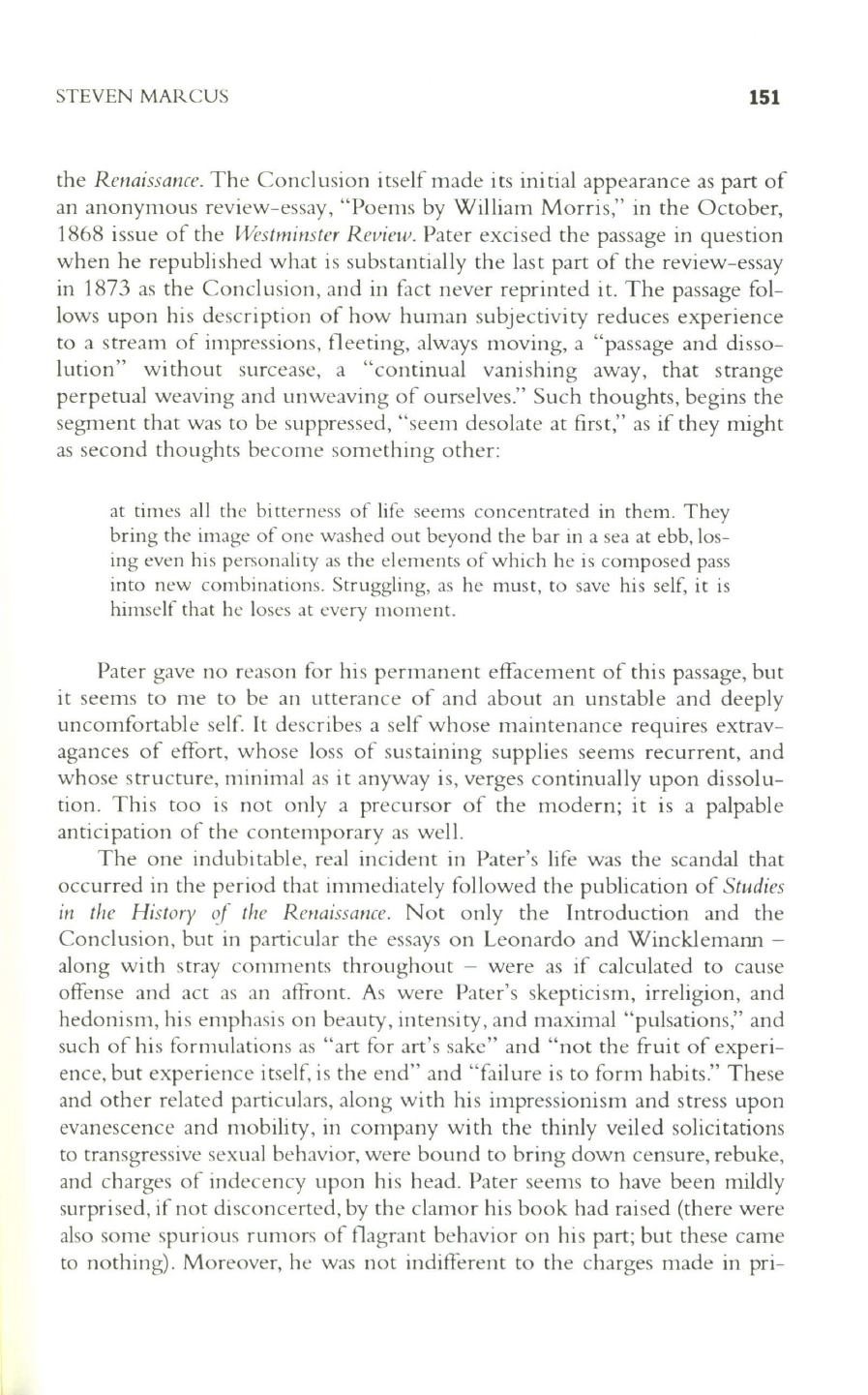
STEVEN MARCUS
151
the
Renaissance.
The Conclusion itself made its initial appearance as part of
an anonymous review-essay, "Poems by William Morris," in the October,
1868 issue of the
Westminster Review.
Pater excised the passage in question
when he republished what is substantially the last part of the review-essay
in 1873 as the Conclusion, and in fact never reprinted it. The passage fol–
lows upon his description of how human subjectivity reduces experience
to a stream of impressions, fleeting, always moving, a "passage and disso–
lution" without surcease, a "continual vanishing away, that strange
perpetual weaving and unweaving of ourselves." Such thoughts, begins the
segment that was to be suppressed, "seem desolate at first," as if they might
as second thoughts become something other:
at times all the bi tterness of life seems concentrated in them. They
bring the imagt: of one washed out beyond the bar in a sea at ebb, los–
ing even his personality as the elements of which he is composed pass
into new combinations. Struggling, as he must, to save his self, it is
himself that he loses at every moment.
Pater gave no reason for his permanent effacement of this passage, but
it seems to me to be an utterance of and about an unstable and deeply
uncomfortable self. It describes a self whose maintenance requires extrav–
agances of effort, whose loss of sustaining supplies seems recurrent, and
whose structure, minimal as it anyway is, verges continually upon dissolu–
tion. This too is not only a precursor of the modern; it is a palpable
anticipation of the contemporary as well.
The one indubitable, real incident in Pater's life was the scandal that
occurred in the period that immediately followed the publication of
Studies
in the History of the Renaissance.
Not only the Introduction and the
Conclusion, but in particular the essays on Leonardo and Wincklemann -
along with stray comments throughout - were as if calculated to cause
offense and act as an affront. As were Pater's skepticism, irreligion, and
hedonism, his emphasis on beauty, intensity, and maximal "pulsations," and
such of his formulations as "art for art's sake" and "not the fruit of experi–
ence, but experience itself, is the end" and "failure is to form habits." These
and other related particulars, along with his impressionism and stress upon
evanescence and mobility, in company with the thinly veiled solicitations
to transgressive sexual behavior, were bound to bring down censure, rebuke,
and charges of indecency upon his head. Pater seems to have been mildly
surprised, if not disconcerted, by the clamor his book had raised (there were
also some spurious rumors of flagrant behavior on his part; but these came
to nothing). Moreover, he was not indifferent to the charges made in pri-


